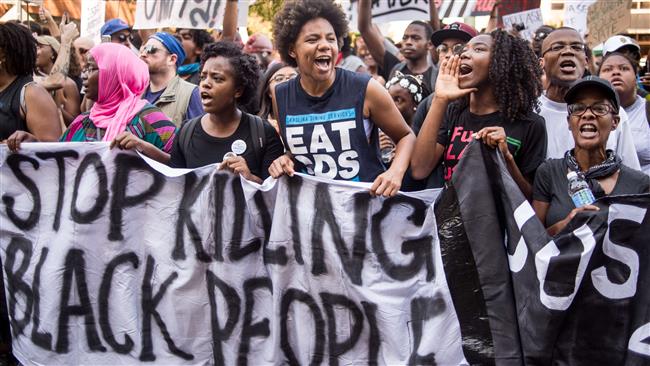US: Police organization issues formal apology to black and Hispanic communities
The president of one of the largest police organizations in the United States has issued a formal apology to minorities for the historical injustice and mistreatment that has fueled deep mistrust of police within predominately black and Hispanic communities.
Terrence Cunningham, president of the International Association of Chiefs of Police (IACP), made the remarks at the group’s annual conference on Monday in San Diego, California. Cunningham, who is also the police chief in Wellesley, Massachusetts, said that US police have historically been a “face of oppression,” enforcing laws that ensured legalized discrimination and denial of basic civil and human rights.
In recent years, the police killing of a number of African Americans have increased tensions between the police and black communities and have led to demands for greater police accountability. “While we obviously cannot change the past, it is clear that we must change the future,” Cunningham said. “We must forge a path that allows us to move beyond our history and identify common solutions to better protect our communities.”
“For our part, the first step in this process is for law enforcement and the (International Association of Chiefs of Police) to acknowledge and apologize for the actions of the past and the role that our profession has played in society’s historical mistreatment of communities of color,” he said.
“Events over the past several years,” Cunningham said, “have caused many to question the actions of our officers and have tragically undermined the trust that the public must and should have in their police departments.”

The comments were an unusual step by a police association, whose members have often denied responsibility for worsening relationships with the minority communities they are supposed to protect. IACP, which has about 16,000 members worldwide, was formed in 1893, and is among America’s oldest police organizations. However, the organization has refused to agree to proposals that would encourage officers to use less force, including deadly force, against suspects.
Civil rights activist Al Sharpton welcomed the apology by Cunningham, but also said he “wants his words backed by action.” Cunningham must “urge officers around the United States to back his words up with action and legislation to protect communities of color from the onslaught of police misconduct that has disturbed the country…words are important but action is integral,” Sharpton said in a statement.
Presstv




